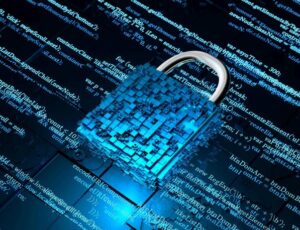Safeguarding Your Digital Fortress. How to Avoid a Cybersecurity Breach
February 9, 2024

In an era where cyber threats are prevalent, protecting yourself from a cybersecurity breach is of utmost importance. The potential consequences of a breach, such as stolen personal information, financial loss, and reputational damage, highlight the need for proactive security measures. In this blog post, we will provide you with essential tips on how to avoid a cybersecurity breach and fortify your digital fortress against potential threats.
Recommendations and Optimal Methods
- Stay Updated with Security Best Practices: Educate yourself about cybersecurity best practices and stay informed about the latest threats and trends. Follow reputable sources, attend webinars or workshops, and regularly read cybersecurity blogs to enhance your knowledge and understanding.
- Use Strong, Unique Passwords: Create strong, unique passwords for each of your online accounts. Avoid using easily guessable information and consider using a password manager to securely store and generate complex passwords. Remember to update your passwords periodically.
- Enable Two-Factor Authentication (2FA): Implement two-factor authentication (2FA) whenever available. This adds an extra layer of security by requiring a second form of verification, such as a unique code sent to your mobile device, in addition to your password.
- Keep Software and Devices Updated: Regularly update your operating system, applications, and devices with the latest security patches. Software updates often include important bug fixes and security enhancements that protect against known vulnerabilities.

- Be Cautious of Phishing Attempts: Exercise caution when dealing with emails, messages, or phone calls asking for personal information or directing you to click on suspicious links. Be wary of unsolicited requests and double-check the sender’s legitimacy before providing any sensitive data.
- Use Secure Wi-Fi Networks: When connecting to Wi-Fi networks, prioritize secure and trusted networks. Public Wi-Fi networks are often unsecured, making it easier for cybercriminals to intercept your data. If necessary, use a virtual private network (VPN) to encrypt your internet connection.
- Regularly Backup Your Data: Create regular backups of your important files and data to an external hard drive, cloud storage, or another secure location. In case of a breach or data loss, backups ensure you can recover your valuable information without significant disruption.
- Employ Robust Security Software: Install reputable antivirus and anti-malware software on your devices and keep them updated. These tools help detect and block potential threats, including viruses, ransomware, and spyware.

- Practice Safe Online Behavior: Exercise caution when clicking on links, downloading files, or visiting unfamiliar websites. Avoid sharing sensitive information on unsecured websites and be mindful of what you post on social media, as it can provide valuable information to cybercriminals.
- Implement Network Security Measures: Secure your home or office network by changing default router passwords, using strong encryption (WPA2 or WPA3), and disabling remote management. Additionally, consider implementing a firewall to monitor and control incoming and outgoing network traffic.
- Regularly Monitor Your Financial Statements: Review your bank and credit card statements regularly for any suspicious activity. Report any unauthorized charges or transactions to your financial institution immediately to minimize potential damage.
- Educate Your Family and Colleagues: Spread cybersecurity awareness among your family members, colleagues, and employees. Educate them about potential risks, safe online practices, and how to identify and report suspicious activities.

Protecting yourself from a cybersecurity breach requires a proactive approach and a commitment to security best practices. By following these essential tips, such as staying informed, using strong passwords, enabling 2FA, keeping software updated, being cautious of phishing attempts, using secure Wi-Fi networks, regularly backing up your data, employing robust security software, practicing safe online behavior, implementing network security measures, monitoring financial statements, and educating others, you can significantly reduce the risk of a breach. Remember, cybersecurity is an ongoing effort that requires continuous vigilance to keep your digital fortress secure.
Have Any Question?
Call or email Cocha. We can help with your cybersecurity needs!
- (281) 607-0616
- info@cochatechnology.com




